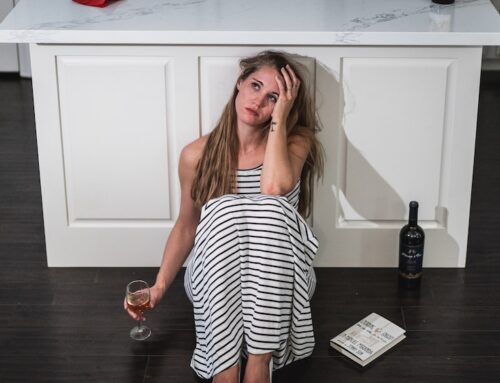You Got Sober, but Are You Having Fun?…From The Fix
By Olivia Penelle
I love my job; I adore writing. But that doesn’t necessarily mean I’m having fun. If anything, it shows me how much of my life is work.
I have often mistaken excitement for fun.
I arrived at my therapist’s office earlier this year in a state of complete burnout. My adrenals weren’t producing sufficient cortisol to get me through the day, inflammation was rampant throughout my body, and my immune system had given up. As a writer who specializes in recovery and wellness, I couldn’t understand how this had happened to me. I worked out four days a week and ate well. I had also uprooted my life and moved to America, where I’d been working seven days a week for a year. My body had kept score. It was telling me it was time to rest, work through some stuff, and recalibrate. In many ways, this process mirrored the process of recovery.
Six months ago, my therapist asked me if I knew how to have fun. Perplexed, I looked at her and wondered why she asked what appeared to be such a daft question. Of course I do, I rather flippantly replied. She asked me to expand upon my answer. I began to explain all the ways I have fun in my life, while simultaneously experiencing one of those moments where I recognized that the words coming out of my mouth were somehow communicating a distorted perception of reality.
I love my job; I adore writing. I beamed. I also love interacting with others: digging into the heart of what makes people tick and how things work, challenging perspectives, and feeling like I’m contributing to the recovery community. I really enjoy yin yoga and exercising too, I tagged on to the end of my explanation, as if to somehow bolster my argument that of course I know how to have fun.
I realized that few of these examples equate to fun. Instead, they provide a sense of fulfillment from my writing and my interactions with others. I may enjoy my job, but that doesn’t necessarily mean I’m having fun. If anything, it shows me how much of my life is work.
Writing is such a complex process that elicits a range of feelings and emotions, from great joy to intense, cathartic pain. While writing has remained an enjoyable activity (most of the time), I have made it my career. Forcing a creative process to adhere to deadlines and other people’s requirements takes away a large chunk of joy and places it firmly in the realm of work, not play. And I used yoga and exercise more as activities of self-care that gave me a sense of relief rather than joy.
I left therapy that day pondering the concept of fun, my understanding of it, what it looked like to me, and what real examples I could muster up. To be completely honest, it was really challenging. First, I had to consider what fun means to me.
When I think of fun, I think of laughter, joy, pleasure and excitement. Breaking that down, I also realized that excitement is something I have also mistaken for fun. I felt excitement when I used drugs, because my life was so unfulfilling and lacking any sense of joy. Given my history, I realized I associated excitement with the danger of taking drugs.
According to Merriam-Webster, fun is defined as:
1 : what provides amusement or enjoyment; specifically : playful often boisterous action or speech full of fun
2 : a mood for finding or making amusement. all in fun
3 a : Amusement, enjoyment. Sickness takes all the fun out of life play games for fun
b : derisive jest : sport, ridicule. a figure of fun. They made fun of the way he talked.
4 : violent or excited activity or argument. Insults were exchanged and then the fun began.
So really, I was looking for what kinds of play, or activities, gave me a sense of enjoyment in life. Academically, I understood the concept. Relationally, I still struggled to find examples.
I could see from my earlier discussion with my therapist that interaction gives me a sense of joy — especially meaningful discussion. Dinner at a fancy restaurant where the food has unusual flavor combinations and the conversation is interesting and intense elicits a feeling of great joy. I feel inspired by eating out and often recreate, with my own twist, dishes I’ve enjoyed — that is pleasurable, especially if I’m listening to music. I also love playful activities, such as crafting and attending creative workshops, and learning how to make something, like a plant hanging or a macramé project. And I get great joy from riding my bike in Portland. Being outdoors in Portland and seeing its natural beauty has been incredibly pleasurable. I love exploring the Pacific Northwest.
Confident in my new understanding that the construct of fun means enjoyment, pleasure, and play, I was keen to understand how others understand fun and how they engage with it. As I often do when considering a topic, I took my question to the recovery community and asked what my peers do for fun. It surprised me that many people were unable to answer, and some answered in the same way that I had with my therapist. Others listed dancing, music and concerts, creative activities, traveling, reading, playing with children in their family, and gaming, but there certainly weren’t a lot of responses. Some even asked what I meant by the word fun.
When asked why we struggle to have fun, significantly more people commented. Recovery scientist Austin Brown said: “People with SUD [substance use disorder] are obsessed with themselves and how they ‘feel.’ I think this carries over into recovery. I think we struggle with obsessions with our own emotions for years into recovery. So it is natural that the question ‘How will I have fun (i.e., find instantaneous relief from negativity) in recovery?’ is brought up. It is an offshoot of this obsession with our feelings.”
Lisa McLaughlin, a person in long-term recovery, says: “As the original party people, many of us in recovery struggle to have fun in the company of drinkers wearing our new killjoy hat. It adds insult to injury that most of us still burn our candles at both ends and have passionate dreams and interests, but find ourselves suddenly shy and isolated in the same rooms where we used to hold court and entertain. It helps to find new sober souls to convene and get rowdy with.”
Arielle Ashford, who is also in long-term recovery, told me: “I think we take recovery far too seriously and therefore ourselves way too seriously. Having fun in the past equaled trouble.” Relearning how to have fun is a challenging task. “It takes imagination, creativity, and courage to get out and have a good time without alcohol and other drugs,” Arielle said.
Recovery is such a huge learning process. Many of us didn’t know how to live before we entered recovery, much less how to have fun — or what that even means. Austin explained that we “have little training in the art of life. It takes a concerted effort to learn. Also, I think they have always mistaken excitement for happiness or joy. In recovery, we have to learn what those things mean and how they feel.”
I believe that we need to engage in as much joy, pleasure, and play as we can to bring levity to what can sometimes be a challenging life in recovery. How do you have fun in your recovery?


